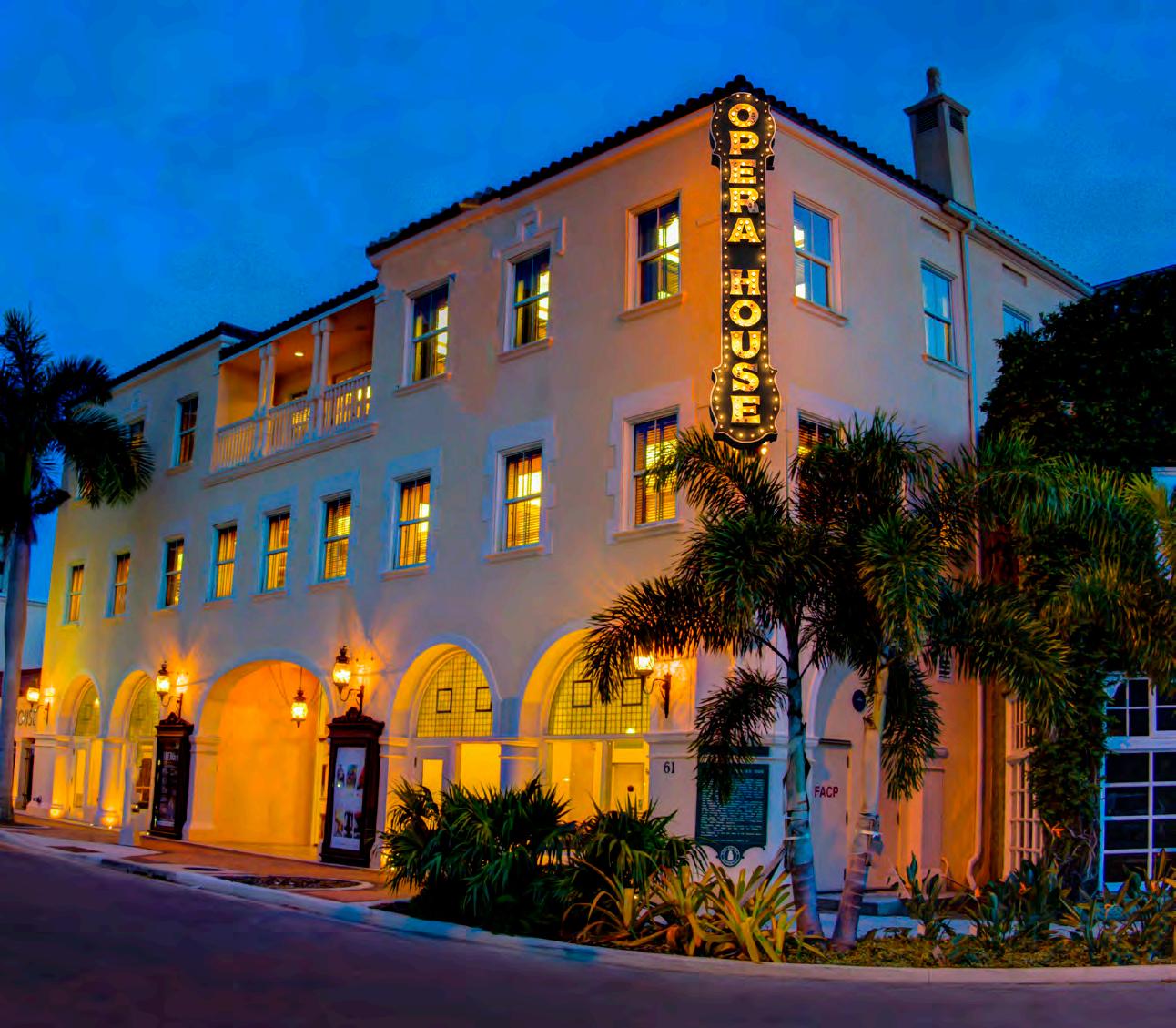LIBRETTO



BY RICHARD RUSSELL, GENERAL DIRECTOR
When I first took the job of Director of Marketing at Sarasota Opera in 2005, I explained to my father that apart from some concerts in the fall, most of what we produced was a winter opera festival in February and March. He then asked me “what do you do the rest of the year”, assuming that I didn’t have much to do the other eight months of the year. Even today, people I talk to in May often say “now that things are quiet…”. I can assure you things are never quiet at Sarasota Opera.
This year was especially full of activity, apart from our usual theater rentals (with performances by the Sarasota Orchestra, Sarasota Ballet, and numerous others). As many know, we had planned to replace the air conditioning system in the Deane Carroll Allyn Pavilion this summer. That job got complicated when the system broke down in May and the equipment, which was on order, was en route from Mexico for a planned July installation.
This required some quick thinking and rearrangement. The very warm Pavilion meant that our box office moved into the small box office in the theater, our education department relocated to second floor of the Artists Wing, and other staff either found temporary quarters or set up to work remotely (something we’ve become very adept since COVID). This also meant that we had to plan to move our Youth Opera Summer Camp, which usually utilizes several rooms in the Pavilion, to locations in the Opera House and Artists Wing, including the stage (which had to be vacated any time we had rented the theater to another group). With great ingenuity, our Youth Opera team of Martha Collins, Jessé Martins, and Cameron Maxwell, along with the many guest artists and teachers managed to provide an enriching experience to the 70 young people who took part in the three-week camp.

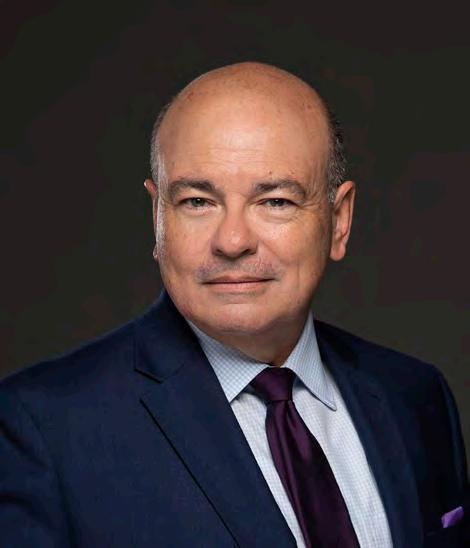
The equipment arrived in July after camp wound down and installation began. It required demolition and removal of the old air conditioning system on the roof, with the replacement of new compressors, chillers, and piping to follow. It was a painstaking process and while we hoped to have things up and running in a few weeks, the work was delayed by frequent afternoon rain, and issues with subcontractors that meant that the air wasn’t finally on until the end of August. Our staff was finally able to move back into their offices and activities returned to normal.

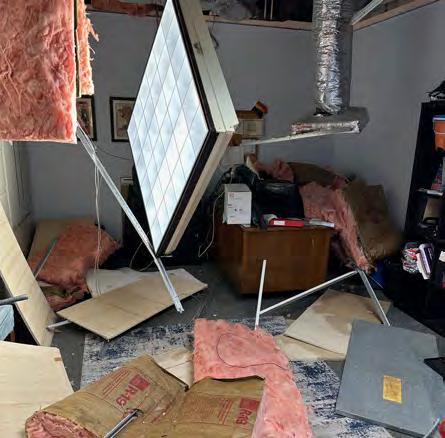
We all experienced an intense threehurricane season with flooding throughout Sarasota and previously unseen storm surges on the barrier islands. Some of our staff and many of our patrons suffered significant property damage, but throughout Hurricanes Debby and Helene, the Sarasota Opera House and other buildings that make up the complex held fast, with little damage and very few leaks. Our two warehouses, one which houses our sets and the other which contains our costumes also avoided any damage or flooding, even though Helene flood waters surrounded the buildings, making them inaccessible for a few days.
Our luck gave out during Hurricane Milton. A well-meaning downtown resident sent me a video while driving around downtown during the calm of the eye of the storm, hoping to reassure me that there was no damage to our beloved buildings. Unfortunately, the backend of the storm was more intense, and some wind got underneath the waterproofing membrane that covered the newly airconditioned Pavilion roof and pulled it up. Rain came through the roof planks that were left and caused water intrusion, some of which seeped through to the first floor, causing damage in our box office and education offices as well as significant water in the Peterson Great Room, where only days before our Youth Opera had been rehearsing The Hobbit.
Our 1926 Opera House and the adjacent Artists Wing held fast, the power stayed on and so following the storm, both were operational. However once again, our box office had to move and our education and production staff became nomads, setting up in unused rooms and moving as needed.
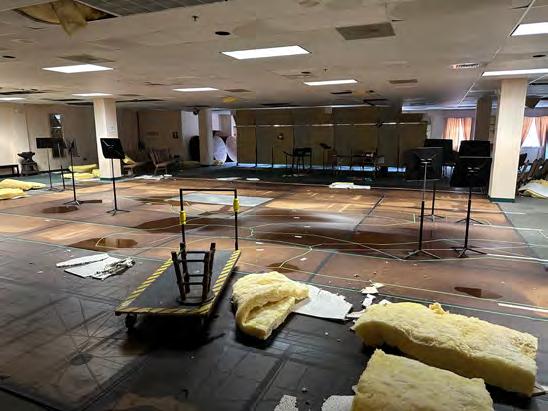
Jeremie Guglielmi and his staff went to work quickly to restore the Pavilion (without which we could get by a fall season, but which is essential for our Winter Opera Festival). Within a day, roofers were beginning to replace the damaged roof, the interior carpeting was torn out, and damaged ceiling tiles were removed and ready to be replaced. The repair costs totaling about $250,000 but we had the Pavilion back up and running by December and ready in time to welcome our artists for the Winter Season. Staging and orchestra rehearsals will once again take place in the Peterson Great Room, and the building will resonate with wonderful voices.
Throughout this, our staff has been adaptive and resilient and maintained a good humor. We knew that despite these inconveniences, many people had suffered devastating losses, and we considered ourselves lucky. The Van Wezel suffered significantly and closed until January, but our stage remained fully operational. Within a week, the National Ballet of Ukraine was dancing on our
The Development Staff is here to answer questions about giving levels and benefits and take reservations to our Signature Events.
Our office’s main number is (941) 366-8450. Positions, extensions and emails for each member of the staff are listed below. Feel free to reach out to any of us. And thank you for your support of Sarasota Opera!
PATRON TIER DONORS ($50 to $5,999) to all areas, including STAR and Youth Opera
Brenda Tamm Ext. 250 btamm@sarasotaopera.org
Davis Wolfe Ext. 231 dwolfe@sarasotaopera.org
stage, and we were able to arrange our schedule so that the Sarasota Orchestra could hold its first Masterworks Concerts in the opera houseOpera House.
We were especially heartened by the response of our Youth Opera members, who had lost valuable rehearsal time for The Hobbit. Hurricane Milton landed on Thursday. Rehearsal on the following Saturday was out of the question as some roads were still impassable. But when we reached out to families to ask if a rehearsal on Tuesday was possible, even though many people were still without power, internet, cell service was spotty, and gasoline was still a little difficult to find, the answer was a resounding YES! They quickly set to the task of making up for lost time and the result of their hard work was an expert performance of The Hobbit.
All of this doesn’t even take into account the “normal” activities of a summer: selling tickets, fundraising, maintenance, casting, and planning for this and future seasons.
Yes, there are a few things to do in the other eight months of the year.
LEADERSHIP TIER DONORS ($5,000+) to all areas, including Co-Producer, Youth Opera and Artistic Achievement Fund
Melissa Voigt Ext. 581 mvoigt@sarasotaopera.org
Karen Misantone Ext. 416 kmisantone@sarasotaopera.org
PLANNED GIVING AND KRETZMER LEGACY SOCIETY
Stacy Ridenour Ext. 246 sridenour@sarasotaopera.org
BY RICHARD RUSSELL
The double bill that opens Sarasota Opera’s 2025 Winter Festival consists of two works that have been inextricably linked almost from their conception and have much in common. Each work is the single indisputable success of its composer, although both composed more operas. They are examples of a style that had a brief success in the late 19th and early 20th century called verismo (“realism”) but that quickly faded. Both stories have their roots in the common people rather than an elevated drama that portrays royalty or the elite. They are short, dramatic works, full of emotion and violence with a tragic end.
Mascagni was a struggling composer when he learned of a competition for one act operas by the publisher Edoardo Sonzogno. Sonzogno ran an Italian musical publisher business, trying to gain a foothold against the powerful house of Ricordi, Verdi’s publisher who dominated Italian musical life. In trying to find new talented young composers, he was also drumming up publicity for his publishing firm and the works that were produced.
With only two months until the competition deadline, Mascagni enlisted his friend Giovanni Targioni-Tozzetti to draft a libretto, along with a colleague Guido Menasci. The subject was based on the short story by Giovanni Verga, Cavalleria rusticana, which had also been turned into a play. Working quickly, Mascagni was not convinced this was his best work, but it nevertheless was one of the three finalists. It was produced at the Teatro Costanzi in Rome on May 17, 1890, and was a smash hit.
The success of Mascagni’s opera inspired another struggling composer, Ruggero Leoncavallo to write a work in a similar vein. Writing his own libretto, the composer claimed it was based on an incident from his childhood that involved the
murder of a family servant. There is a fair amount of evidence, however, to suggest it was partially plagiarized from a French play that was popular in Paris when Leoncavallo lived there. The opera was first performed on May 21, 1892, (conducted by Arturo Toscanini) and was a popular success. Within a year, Mascagni’s and Leoncavallo’s operas were paired as a double-bill, which has become colloquially known as Cav/Pag
The taut dramatic style that emerged from these two works excited contemporary audiences and both contain music that is memorable, yet effective. Modern listeners will no doubt recognize music from both operas, which have been tapped for movie soundtracks and television commercials. In context, these selections are an important part of the narrative arc of these operas and create the emotional context for the tragedy that will come.
In the iconic moment from Pagliacci, the actor Canio, betrayed by his wife, an orphan who he has rescued and married, wallows in his misery.
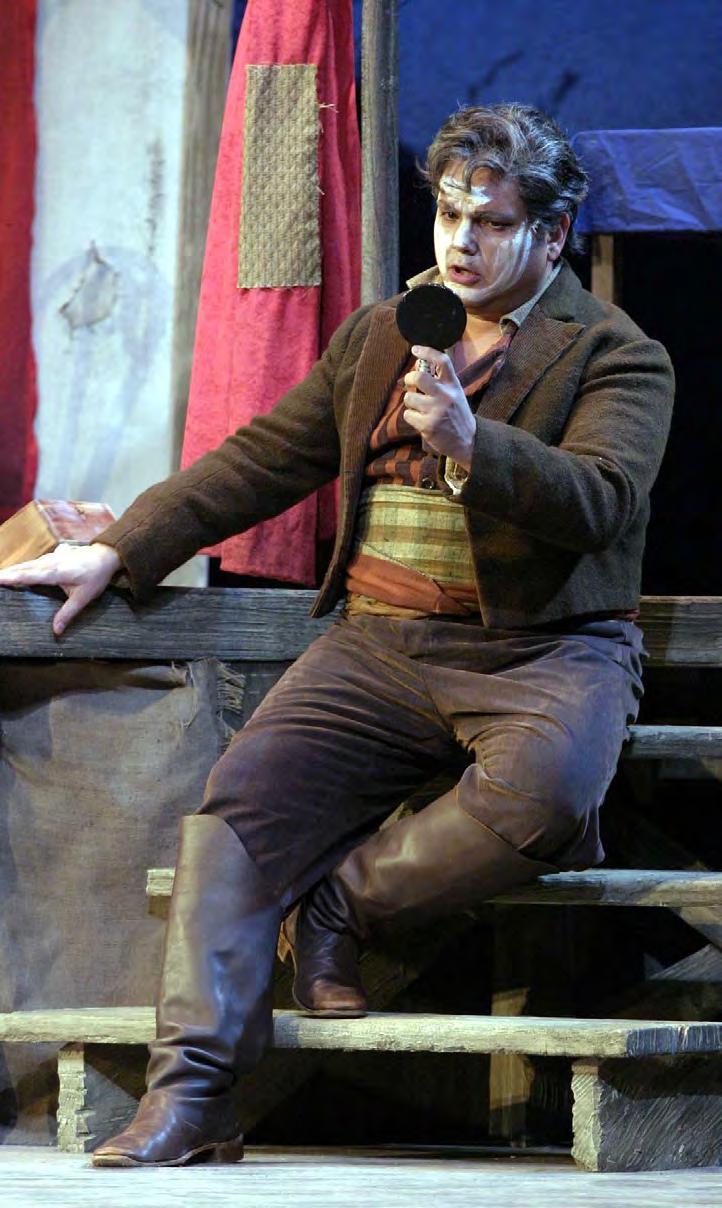
The Intermezzo from Cavalleria rusticana appears in two famous films: Raging Bull and The Godfather, Part III. In the opera, this calm, almost serene reflection is a moment that breaks the tension of the two dramatic confrontations that precede it and effectively frames the denouement to follow. As we listen, we look at a church and a stage empty of people. The townspeople are at Easter Mass, praying and unaware of the simmering violence that will eventually be unleashed, culminating with the murder of one of their neighbors.
In the iconic moment from Pagliacci, the actor Canio, betrayed by his wife, an
orphan who he has rescued and married, wallows in his misery. Unimaginably, he must don the garb of a clown and in the opera’s most famous selection “Vesti la giubba” he lets out a cathartic wail: “Ridi, Pagliaccio” (“Laugh clown”), almost as dramatic and violent as the action that will conclude the opera, when he kills the two adulterous lovers.
The passion of these two operas is concise and fast moving, that might be difficult to sustain in a full-length work. That may be one of the things that makes these two operas popular. And while they are occasionally paired with other operas (sometimes a comedy to lessen the tension) as a pair, Cav/Pag make an emotionally and musically moving and satisfying evening.
BY MARTHA COLLINS DIRECTOR OF EDUCATION
This fall, our Resident Artists were in town for seven busy weeks of opera. Singers Joylýn Rushing, JoAnna Pope, Alejandro Lluevanos, Jake Stamatis and Luke Harnish and Maestros Arthur Bosarge and Dennis Uz were wonderful ambassadors for our art form and our company in the schools and the community.
A main focus for our singers was our Artists in Schools program. At each venue our singers sing opera excerpts, talk about what it means to establish and maintain an opera career and have a Q&A session with the students. The goal is to open their knowledge and curiosity about our art form and what we do here at the opera company. Hopefully, some students will be drawn to participating and join Youth Opera!
Some questions are predictable: “How can you sing so loud?” or “How can you sing such long notes?”, but many are more thoughtful: “Is it hard to be away from your family so much?” or “How do you manage to deal with having so many eyes focused on you?”
Said Jake Stamatis “It is very special to me to sing for these kids at this young age because I myself did not know anything
about opera till I got to college, and then was inspired to do it for life. I would have loved the opportunity. He shared that at one school a teacher came up to him while Luke Harnish was singing an aria. She leaned in close and pointed to a 2nd grade child whose face was a picture of awe and wonder and said “Look over there. That's your future.”
This year we had a record 34 requests by educators to have our artists perform. These covered a wide range that includes elementary through college institutions, special needs schools, outdoor venues, and combination Opera House tour/ performance. Some schools requested more than one performance to reach more grades, so we had a total of 45 performances with nearly 4,000 students being given a chance to hear opera! Hurricane Milton forced some cancellations, but I was happy that most wanted to reschedule.
Our artists were on their toes dealing with early morning school schedules, audience sizes ranging from 25 to 500, traveling throughout Sarasota, Manatee and Charlotte counties and adjusting their performances and answers to the varying ages of their audience.
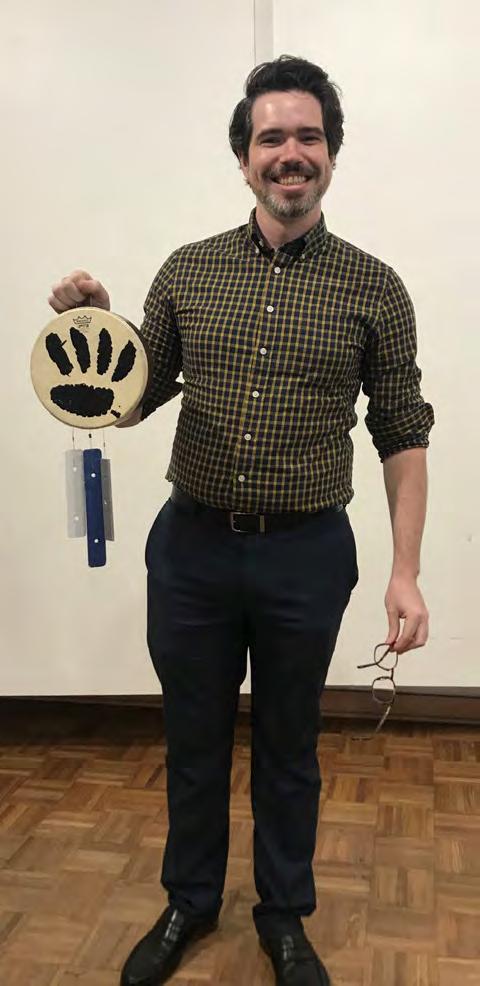
It is very special to me to sing for these kids at this young age because I did not know anything about opera till I got to college, and then was inspired to do it for life.
~ JAKE STAMATIS
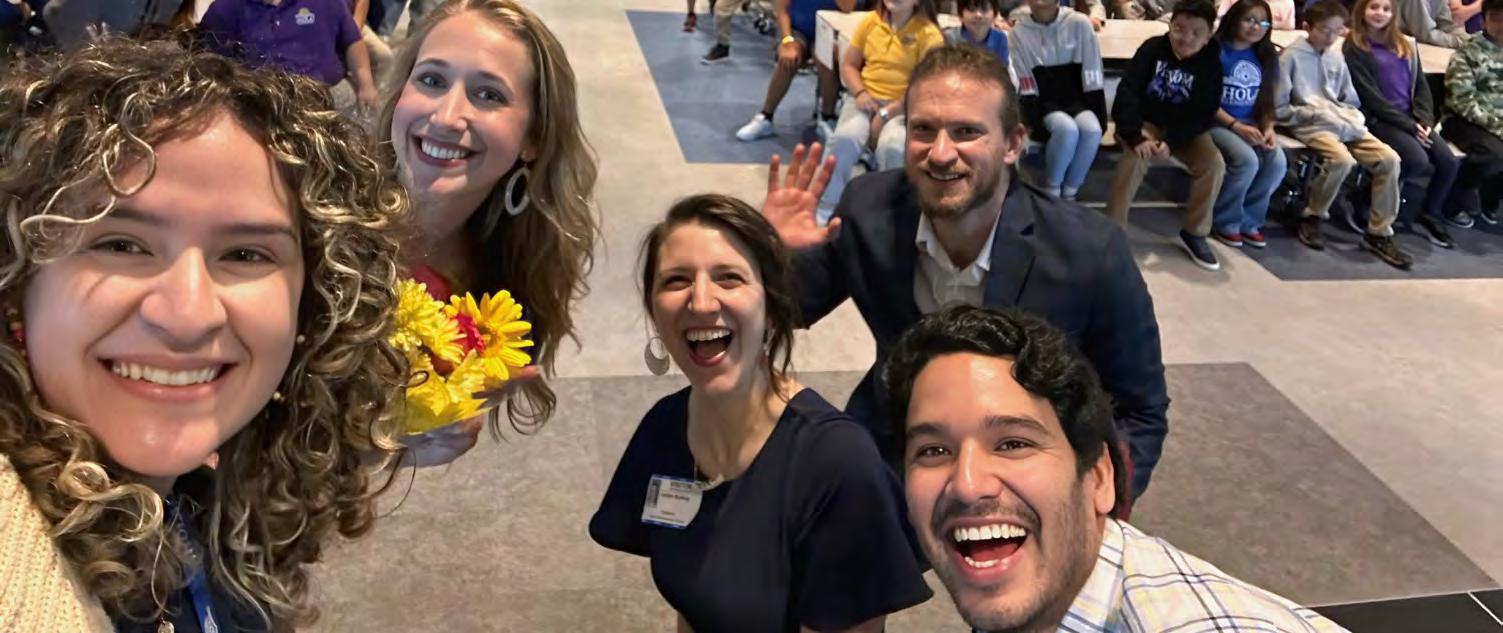





title and registration are the responsibility of the
Winner is solely responsible for all
and
and
or
to winner for the value of the prize. The IRS requires withholding estimated taxes on the winnings prior to release of the prize. No prize substitution or cash equivalent of prize. No prize transfer. A maximum of 1750 number of entries are expected. Odds of winning are determined by the total number of entries received, with the maximum odds of 1:1750. GENERAL CONDITIONS: By entering, entrants accept and agree to the Official Rules and the decisions of the Sponsor, which are final and binding in all respects. Winner will be notified by telephone and by certified letter from the Sarasota Opera Association, Inc. and will be required to execute and return an affidavit of eligibility, a liability release and a publicity release, where legal, within 7 days of notification. In the event of non-compliance with requirements, or if prize notification is returned as undeliverable, the prize will be forfeited and an alternate winner selected. By accepting the prize, except where prohibited by law, winner agrees to the use of his or her name and/or photograph for advertising/publicity purposes without further compensation or notice. By participating, entrant agrees to release and hold harmless the Sarasota Opera Association, Inc. and their respective
INTERVIEW BY MARINA HARSS, WRITER & JOURNALIST
This winter season at Sarasota Opera, the young Pennsylvaniaborn mezzo-soprano Lisa Marie Rogali will take on the role of Rosina in Rossini’s romantic comedy The Barber of Seville. Her character in Barber is that of a feisty young woman, able to bypass the wishes of her guardian, Don Bartolo, in order to marry the man she loves. Even the clever Figaro, barber by trade and “fixer” by inclination, is forced to admit that she is his equal in craftiness. “E il maestro io faccio a lei!” (here I am, presuming to teach her my tricks!) he exclaims, impressed by her cleverness.
This will be Lisa’s second time interpreting the role, after débuting it this past February at North Carolina Opera. Her performances there were well received. According to one reviewer, “her vocal agility as the ward Rosina and her ability to play off her scene partners perpetuated a lightness throughout the show.” This bodes well for her Sarasota performances. One day, she says, she’d love to sing the title role of La Cenerentola, another comic Rossini heroine. But Rogali is not just a comedienne—she is also drawn to drama. Earlier this November, she had her début as Carmen in the eponymous work by Bizet, at Virginia Opera. What’s most important to her, as she says below, is finding truth and authenticity onstage.
Rogali, whose professional début took place in 2018 at Minnesota Opera in La rondine, currently resides in Atlanta. She will be performing in Sarasota for the first time. We spoke recently, when she was in the middle of rehearsals for Carmen:
We’re looking forward to seeing you here in Sarasota, in the role of Rosina. You’ve sung the role before. What is your relationship with this character? How would you describe her?
She’s such a fun character—full of wit, charm, and playful energy. I love how resourceful she is and how she goes after
what she wants. I can’t wait to perform her again and uncover even more about her this second time around.
How would you describe your performance style?
I consider myself a performer who prioritizes acting. I aim for each moment onstage to feel spontaneous and authentic. It’s important to stay present and in the moment. While opera is about the voice, the real magic happens when singing and acting seamlessly inform one another. That’s what draws me in as an audience member and makes a performance truly captivating.
What repertoire are you most drawn to?
Hmmmm… that’s a tough one! I genuinely love both comedy and drama, and I feel fortunate to have the chance to perform both throughout my career. When it comes to language, I’m particularly drawn to singing in French and Italian.
Where did you study voice?
I earned my Bachelor’s degree in Music Education from Penn State University and went on to complete a master’s in Vocal Performance at the Cincinnati CollegeConservatory of Music.
What is a role you’re dying to sing, and why?
I would love to perform the role of Cinderella one day—both in Rossini’s La Cenerentola and Massenet’s Cendrillon. I find it particularly meaningful when I can connect with a character on a personal level. I had a very humble upbringing and didn’t always have an easy childhood, which makes me feel deeply connected to Cinderella’s story.
How did you get into singing?
Oddly enough, I don’t come from a family of singers or musicians. As a child, I was very shy and initially didn’t have much interest in singing. I did, however, have a natural ear for music. To stay involved
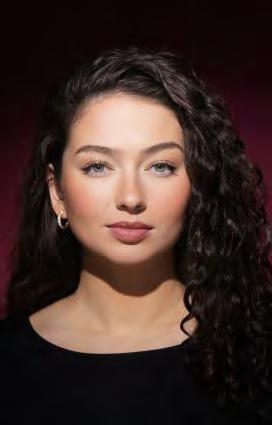
I find it particularly meaningful when I can connect with a character on a personal level.
in music without being in the spotlight, I joined the school band and played the clarinet—it felt safer to express myself while “hiding” behind an instrument. But over time, I found myself joining every musicrelated activity I could in high school, including choirs and theater productions. That’s where my love for the stage was born. Performing in plays and musicals awakened something in me, and I started to realize how much joy I found in both singing and acting.
Did you have other interests outside of music?
I grew up in Hawley, Pennsylvania—a small town in the northeastern part of the state, which, to be honest, feels a bit like the middle of nowhere. Aside from music, I was always drawn to activities that allowed me to push my personal limits. As an introvert, I gravitated toward individual sports where I could challenge myself. I ran long-distance track/field and played tennis. I also had a passion for creative writing and poetry, which provided another outlet for self-expression.
LISA MARIE ROGALI
CONTINUED FROM PAGE 6
When did you decide to become a performer?
When it came time for college, I chose to major in music education—it seemed like the more practical path, especially since pursuing a performance career felt risky, and I didn’t come from a financially well-off background. But during my undergraduate studies, my teachers saw potential in me and nurtured my vocal abilities. With their support, I began to seriously develop my voice, and the idea of becoming a performer started to feel not only possible but essential.
What are you looking forward to doing while you’re in Sarasota?
I would be lying if I said I wasn’t excited to be in Florida during the winter months!
Growing up in Pennsylvania, I experienced a true winter, and I’ve spent most of my winters in colder cities since then. I’m really looking forward to enjoying the outdoors and exploring the beautiful beaches and parks in the area.
RESIDENT ARTIST PROGRAM
CONTINUED FROM PAGE 4
Three of our artists were also involved in our Youth Opera Production of The Hobbit. Bass Luke Harnish is performing the roles of Gandalf and Smaug the dragon, and Jake Stamatis is Old Bilbo. As well, one of our YO members had to pull out of the production at short notice due to health issues, and we are so grateful to JoAnna Pope for stepping in as one of the Elf Maidens!
This creates a unique opportunity for our YO singers to learn from and emulate the professional singers.
I hope many of you heard them in their other outreach performances - perhaps at the Yacht Club, Plymouth Harbor, Opera Guild meetings and many more. One of my personal favorites was our “Purple” concert for Selby Gardens to tie in with their fall exhibit. The repertoire all tied in to research I found relating to the color. A fun concert to plan and the singers and Maestro Jesse were fantastic!! And we all wore something purple!!
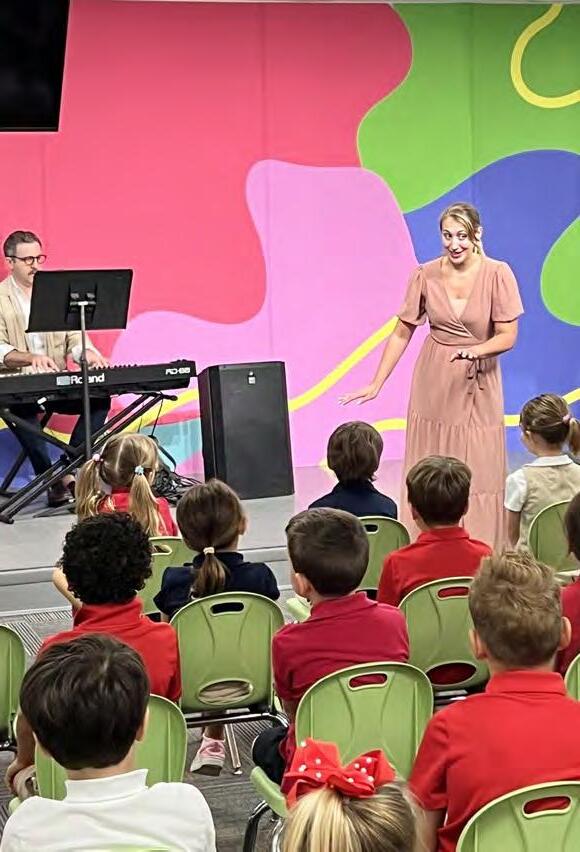






Join us in celebrating some of Sarasota Opera’s Apprentice and Studio Artists as we honor them for their work this season. Enjoy a gourmet lunch with new and old friends and performances by the awardees. Awards are presented through the generosity of visionary individuals as well as the Sarasota and Manatee Opera Guilds.
For questions or to make your reservations, please contact SOAEvents@SarasotaOpera.org or (941) 366-8450, ext. 581
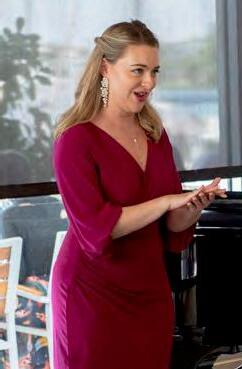
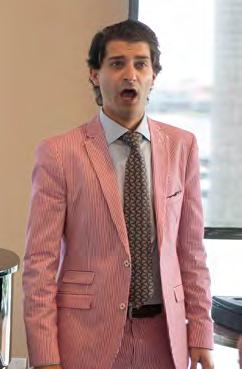
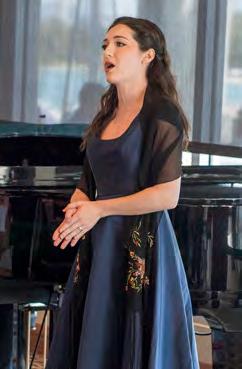


HELD FRIDAY, JANUARY 31 AT THE RITZ-CARLTON
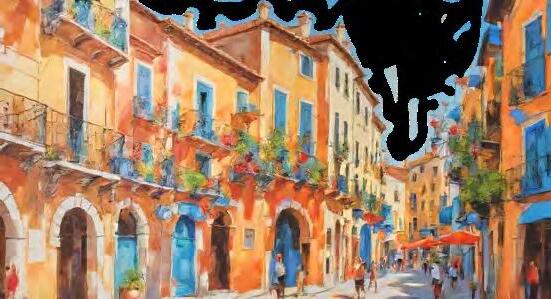

Patrons experienced Spain’s beauty, culture, cuisine, and flamenco dancing and music at this season’s opening Gala. The event celebrated the Sarasota Youth Opera’s 40th anniversary and Les and Carol Brualdi’s many years of devotion to Sarasota Opera and its youth and education programs. Many thanks to our Co-Chairs: Tamara Jacobs and Edie Chaifetz, Ambassador Committe, and sponsors: Gulf Coast Community Foundation, Scene Magazine, and Mariner Wealth Advisors.

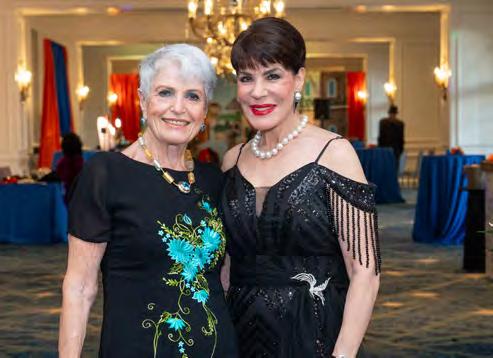
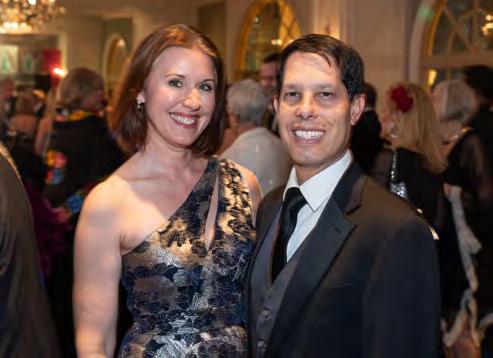
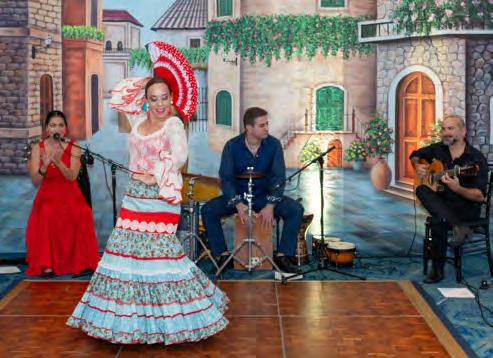

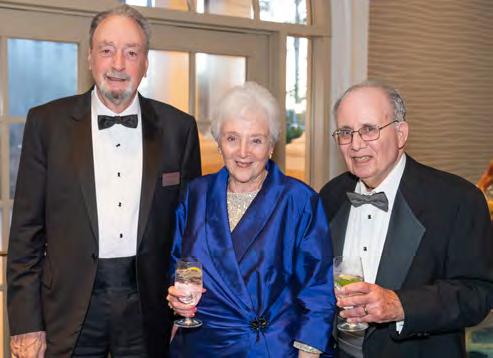
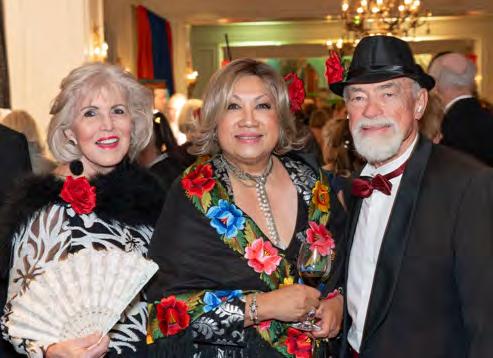
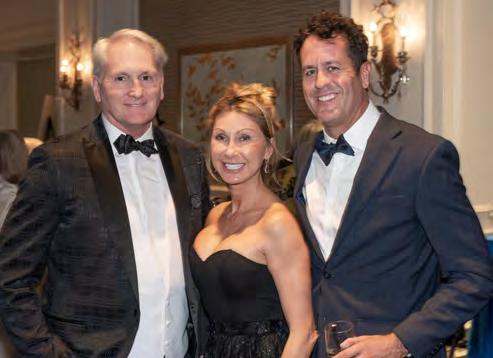
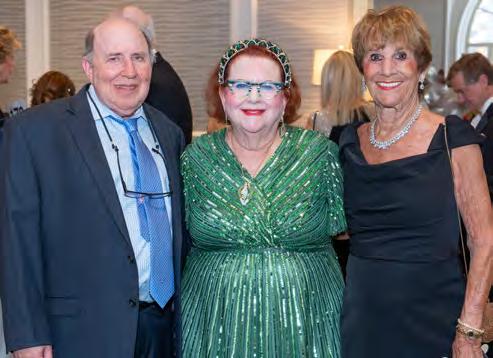
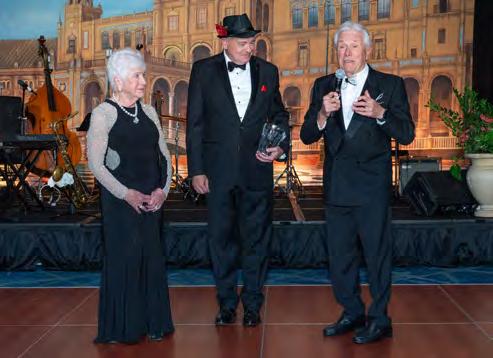

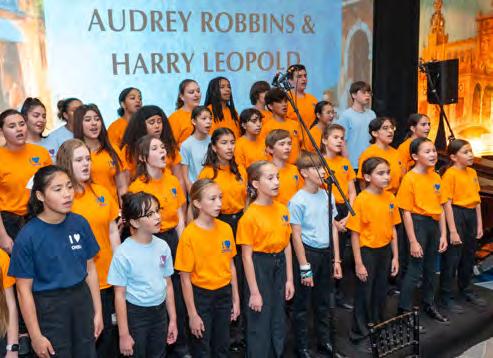
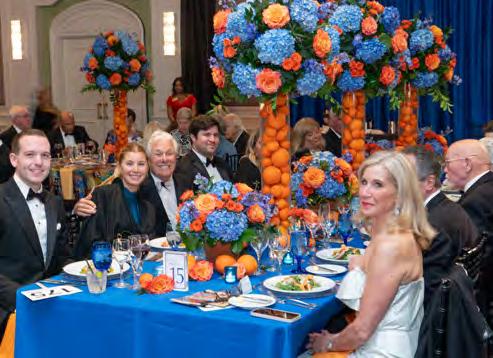
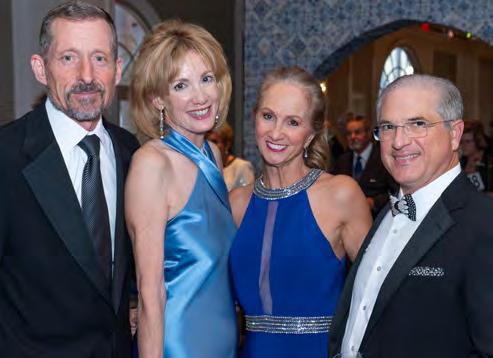
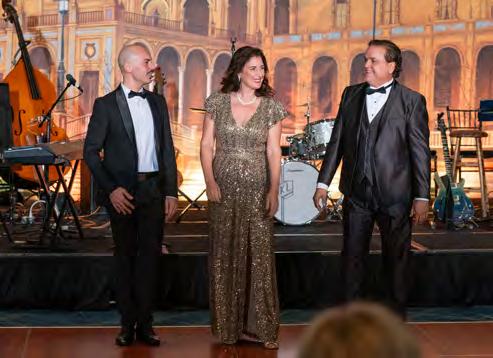

BY JANET STERN SOLOMON
Martha started life in the Philadelphia area and continues to be a part-time resident there. Although her parents liked classical music, when she was growing up she wrote that off as “old peoples” music and only liked popular music. After high school, a friend wanted to take a nursing entrance exam but was reluctant to go to the testing site alone so Martha went with her and took the exam. Martha passed and entered nursing school while the friend didn’t pass and went on to other things. Martha married and was a geriatric nurse while her husband did direct marketing as they began to grow their family.
On a whim, when a friend suggested they buy a deli that was for sale, they both left their careers and owned and managed the deli for about five years. With three children to raise Martha decided to leave the deli business and focus on her family. Throughout all these years the family went to many musicals with their children, but opera was never something they attended.

One day her masseuse heard her singing for herself and suggested that she take vocal lessons with a teacher of some repute. So at age 60, she began voice lessons and learned Verdi and Puccini arias. Intrigued, she started reading about these composers’ lives and finally went to a performance of Aida. It’s an unusual start to loving opera by first singing arias and then hearing an entire opera for the first time. She continues her vocal lessons today with the same teacher!
In 2005, after moving to Sarasota for the winters, a friend encouraged Martha to attend the Sarasota Opera. Her husband studied the librettos and she enjoyed the music and theater for the performances. She has been a subscriber and supporter for more than a decade. Most recently she made an estate provision for Sarasota Opera, becoming one of the newest members of the Kretzmer Legacy Society. She loves the character and charm of the Opera House and wants to foster the timeless stories that operas tell for future generations.
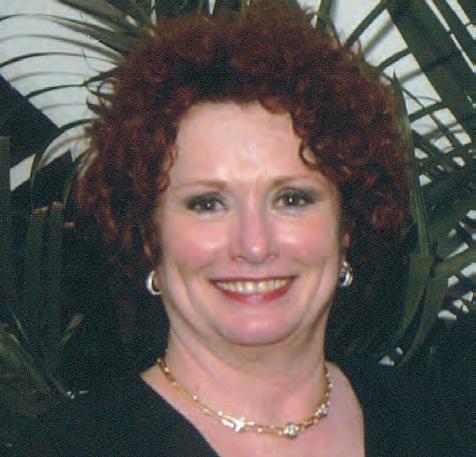
(Martha) loves the character and charm of the Opera House and wants to foster the timeless stories that operas tell for future generations.

Mini Events are intimate events held by members of the community in private homes and special locations, with themes and activities to engage the community – connecting new and old friends. All proceeds support Sarasota Opera. Check out the variety of Mini Events being planned and updated throughout the year at www.sarasotaopera. org/minievent.
The ultimate opera immersion experience. See all four winter productions in as few as three days! Available March 19-30, 2025
BY RICHARD RUSSELL
Mention The Barber of Seville and even many people who have never stepped foot in an opera house will know what you are talking about. Its ubiquity in popular culture (movies, commercials, cartoons) ensures that at least some of the music is recognizable, even if one doesn’t know its source.
The Barber of Seville is the most famous and popular of all comic operas and the reason is not hard to understand. The characters are engaging and memorable. The libretto is funny and ripe with opportunity for comic effect. Despite all of that, most people would agree that Rossini’s skillful and delightful score is the primary cause of the opera’s enduring success and popularity.
At their sole meeting, Beethoven told the Italian composer, “Ah! Rossini, you, the composer of Barbiere di Siviglia? My congratulations; that is an excellent opera buffa; I have read it with pleasure and I enjoyed myself. It will be played so long as Italian opera will exist. Do never try your hand at anything but opera buffa; you would be doing violence to your destiny by wanting to succeed in a different genre.”
Beethoven may have had a point. Although more than half of Rossini’s 39 operas were serious and well worth seeking out (William Tell is a significant work, which is not heard as often as
is should be due to its length and the difficulty of some of the leading roles), it is for his comic works that he is remembered. Rossini had a felicitous talent for portraying comic characters. He was a master of the patter song, like Figaro’s entrance aria “Largo al factotum” which is a vocal tour-de-force, while testing the singer’s ability to articulate text quickly. One of the opera’s other patter arias, Dr. Bartolo’s “Un dottor della mia sorte” is so challenging that for years it was omitted in favor of another, easier aria by another composer.
Another remarkable feature of Rossini’s comic operas is his use of the sound of words (in addition to the meaning) to create a musical and comic effect. In the first act finale of Barber there is a moment when all the characters sing the text “Alternando questo e quello, pesantissimo martello (Alternating this and that, the very heavy hammer)” to quickly rising and falling lines creating comic tension to hilarious effect.
And of course there is the famous Rossini crescendo, used effectively in the overture (which was originally written for a different, serious opera) and the first act finale. It the gradual increase in sound, by the gradual addition of layers of instruments to the accompaniment, culminating in a cathartic release and creating another great musical and comical moment.
There are many joys to be found in The Barber of Seville. Because of Rossini’s mastery is the perfect work for new operagoers and yet continues to entertain those who have seen it many times. It’s a great opportunity for wonderful singers
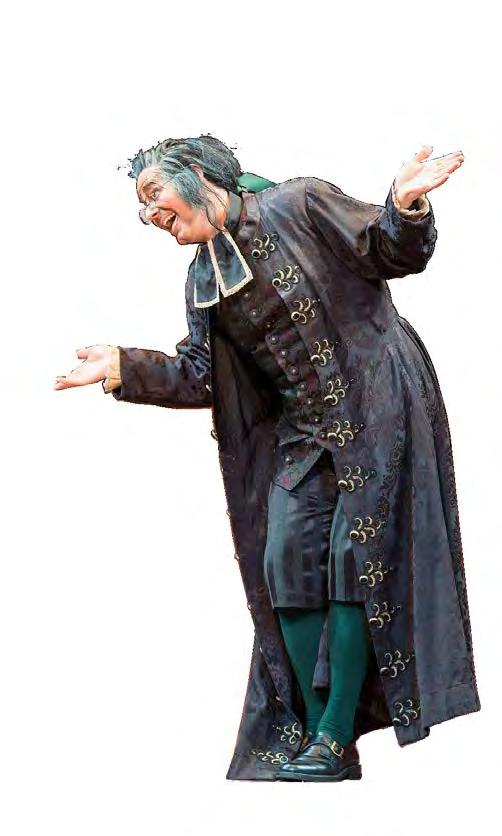
Ah!
Rossini, you, the composer of Barbiere di Siviglia?
My congratulations: that is an excellent opera buffa
~ Beethoven

A gift to the Sarasota Opera Tribute Fund is a beautiful way to memorialize a loved one, honor a friend, or celebrate a special occasion. A tribute card is sent to a family member or the honoree and is published in this newsletter. The following tributes were requested between August 1 and November 15, 2024.
IN MEMORY OF DEBORAH JO AINSLIE
Katherine Benoit and John Brooks
IN MEMORY OF JOHN BASIL
Victor DeRenzi and Stephanie Sundine
IN MEMORY OF ROBERT ‘DOC’ BENJAMIN
Susan Benjamin
IN MEMORY OF STEVE BLACKLEDGE
Ronald and Barbara Archbold
Rosemarie A. Cadwell
Victor DeRenzi and Stephanie Sundine
Isa Engleberg and Allan Kennedy
Shirley Kerns
Rose Marie Proietti
Rich and Stacy Ridenour
Richard Russell and Cynthia Bydlinski
Thomas W. Stock
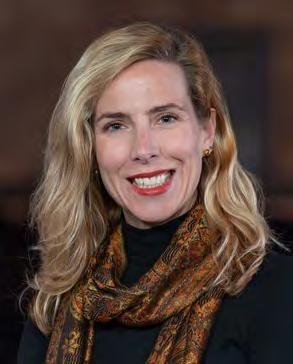
IN MEMORY OF MICHAEL BUDIN
Robin Blumenfeld Switzenbaum
IN MEMORY OF JUANITA CONNELL
Victor DeRenzi and Stephanie Sundine
Manatee Opera Guild
Marleta Matheson
Martha Richardson
Richard Russell and Cynthia Bydlinski
IN MEMORY OF V. REV. FR. FRANK. M. KIRLANGITIS
Maria Kirlangitis
IN MEMORY OF ERNIE KRETZMER
Victor DeRenzi and Stephanie Sundine
Richard Russell and Cynthia Bydlinski
William and Rebecca Tompkins
J. Russell and Margarete Wiltshire
Lael joined Sarasota Opera as Director of Marketing in August 2024. She is a communications and development specialist with nearly two decades of experience working internationally in the communications and nonprofit sectors. Lael has worked with several organizations as a strategic communications consultant, including the World Bank and the government of Afghanistan. In London from 2010 - 2013, she worked for BBC Media Action on educational and media development programs. She served as public relations advisor at the Afghan Embassy in Washington, DC from 2015-2018. Most recently she served as Executive Director of the Enabled Children Initiative, a non-profit she co-founded in 2013 that supports children with disabilities. She has a BA in communications (minoring in Music Theory and French) from Mary Baldwin College and an MA in international relations and journalism from Boston University. A Bradenton-native, Lael recently moved back to the area after living abroad for 15 years. She has three children.
IN MEMORY OF BUD SHAPIRO
Richard Russell and Cynthia Bydlinski
Victor DeRenzi and Stephanie Sundine
IN MEMORY OF OLGA AND JOHN OLENICK
Maria Kirlangitis
To have a tribute listed, please send a contribution of $25 or more to: Sarasota Opera, Attn: Tribute Fund
61 N. Pineapple Ave., Sarasota, FL 34236, or online at: SarasotaOpera.org/tribute-gifts.
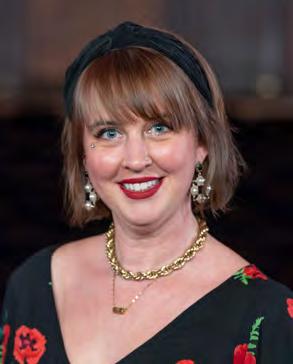
Hallie joined the Sarasota Opera in November 2024 as Digital Marketing & Communications Manager, bringing over ten years of experience in digital content creation and strategy. Previously, she served as Digital Communications Manager at the Indiana University Jacobs School of Music, where she led digital projects to bring in new opera loving audiences, and launched the “JacobsConnect” newsletter, connecting students, alumni, faculty, and staff. Hallie’s expertise spans multimedia production, social media, and email marketing, with a creative approach to problem-solving that drives impactful results. When she's not shaping the Opera's digital presence, Hallie works in a hybrid capacity from Puerto Rico, where she lives with her partner and their four cats—who are often her toughest (and cutest) critics!


